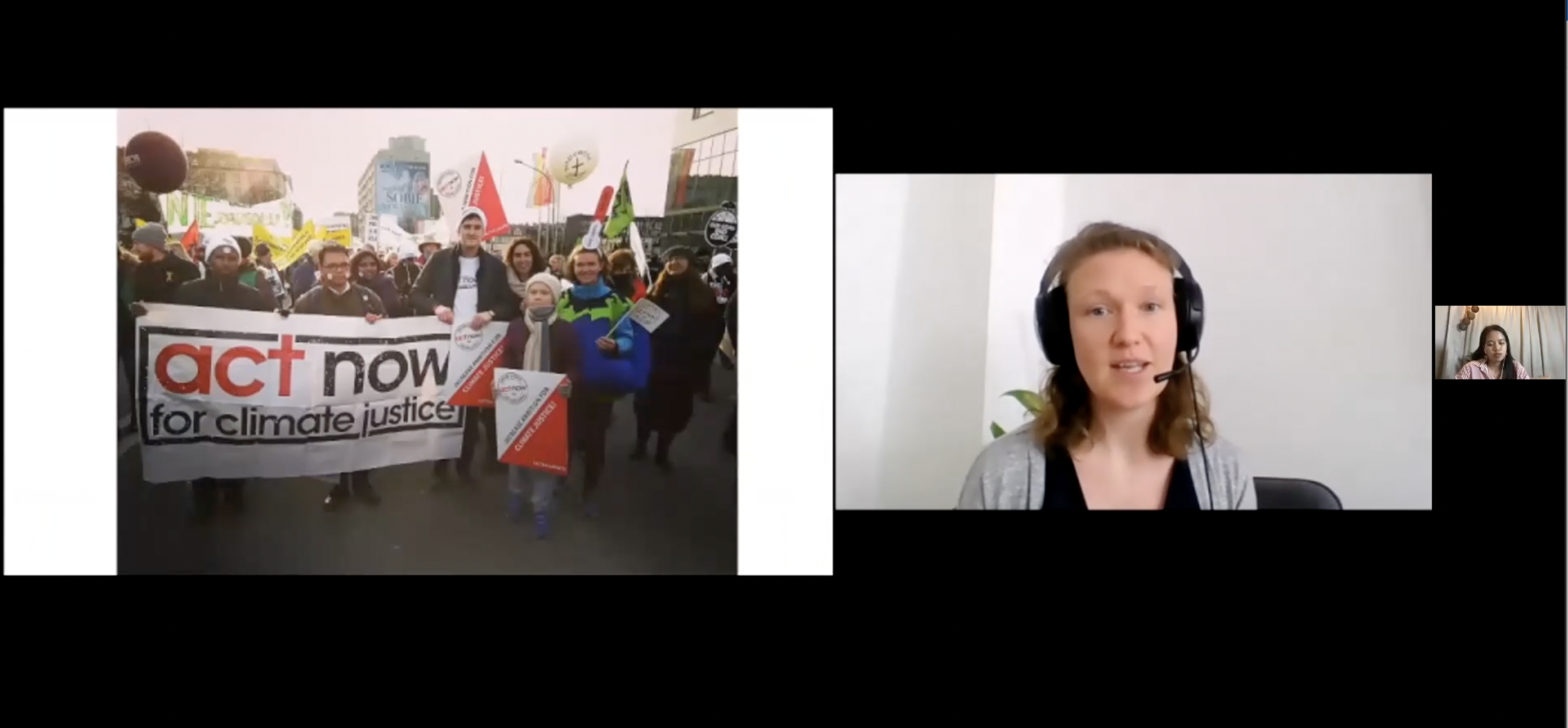 Even in the midst of a global pandemic, there is perhaps no greater issue facing humanity than the climate crisis. Although each year, representatives of states, the private sector, and civil society gather at the UN Climate Conference known as COP to negotiate about the global response to this existential emergency, little progress has been made to address the root causes of climate change.
Even in the midst of a global pandemic, there is perhaps no greater issue facing humanity than the climate crisis. Although each year, representatives of states, the private sector, and civil society gather at the UN Climate Conference known as COP to negotiate about the global response to this existential emergency, little progress has been made to address the root causes of climate change.
As part of the Global Prayer and Action Chain for Climate Justice, ACT Alliance helped host a webinar Raise your Voice in Faith for Climate Justice in mid-May which saw well over 100 people of faith from around the world gather to learn and chare together on how they can influence their countries’ contributions to COP26 later this year.
COP26 was scheduled to be held in Glasgow in November 2020, but was postponed by a year by the pandemic. An important part of nations leading to COP26 will be the ramping up of ambition in their Nationally Determined Contributions (NDCs), the plans by each country of how they will decrease their emissions to reach the goal of limiting global temperature rise to 1.5C.
A wide variety of speakers from climate experts to archbishops to youth activists talked about the NDCs, the actions they take towards climate justice in their homes and churches and at the COPs. Athena Peralta, programme executive for economic and ecological justice of the World Council of Churches, gave an overview of the current state of the NDCs in mid-2021 after a panel discussion on What are the NDCs and COP26 and why are they important? which featured climate activists from Africa, Latin America, and the Pacific.
Archbishop Mark MacDonald, National Indigenous Bishop of the Anglican Church of Canada, talked about the experience of indigenous people. “There is no livable future of the planet in which Indigenous peoples’ rights are not respected,” he said. The fight for indigenous people’s authority over the mineral and other resources on their land is “one of the most effective ways of slowing down the greed that blinds people to the rate of development that is destroying our planet.”
Bino Makhalanyane, youth coordinator at Green Anglicans, talked of how people of faith in Namibia stood up to a foreign extractive company in the Kavango Basin. After a local newspaper was sued for breaking the story about the oil drilling project, he explained, Anglican bishops around the world joined a campaign to stop the drilling. “We have seen media houses now amplifying this message, taking it out to the people… People should be given that opportunity to express themselves and not be frightened when they speak about what they believe is not correct.”
Helena Funk, a young Lutheran from Germany, spoke about her work in climate justice from COPs to engaging at the local parish. “I think it is very important to record what is happening at the UN climate conferences, and even what we are doing in our home churches for caring for the environment, to inspire more people and to gain attention to this topic,” she said.
The webinar wrapped up with break out groups on topics ranging from how to engage local churches in climate justice to how to organize a COVID-safe protest to effective use of media and social media, to engaging politicians. These sessions presented concrete examples of how people of faith can get more involved in the global fight for climate justice at the local level. Notes from the break out groups will be shared on here, along with other materials from the webinar.
The Global Prayer and Action Chain for Climate Justice will continue to work to bring people of faith together towards COP26. You can sign their petition to COP26 here, as well as other ways to act and pray for climate justice on their website.